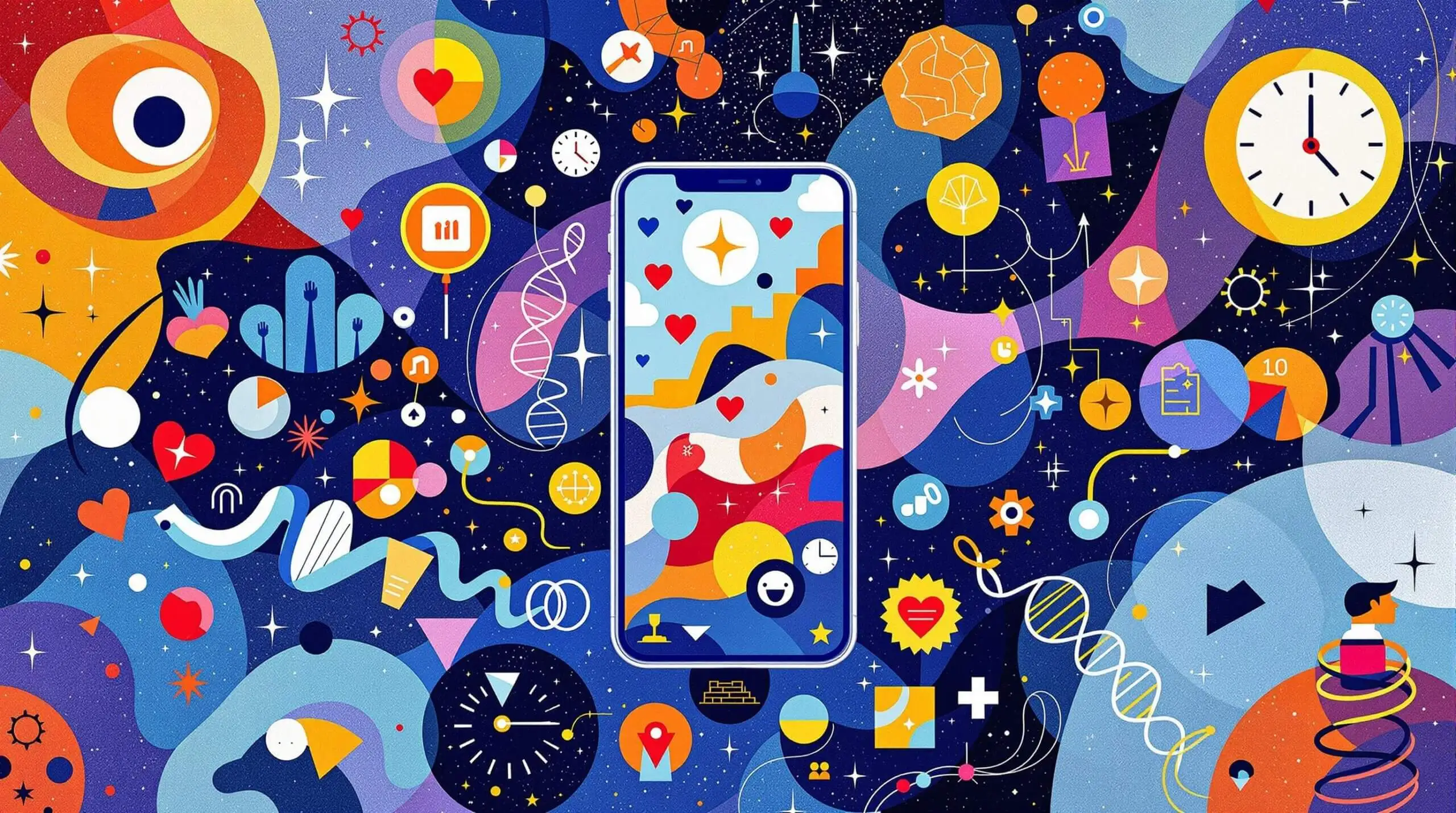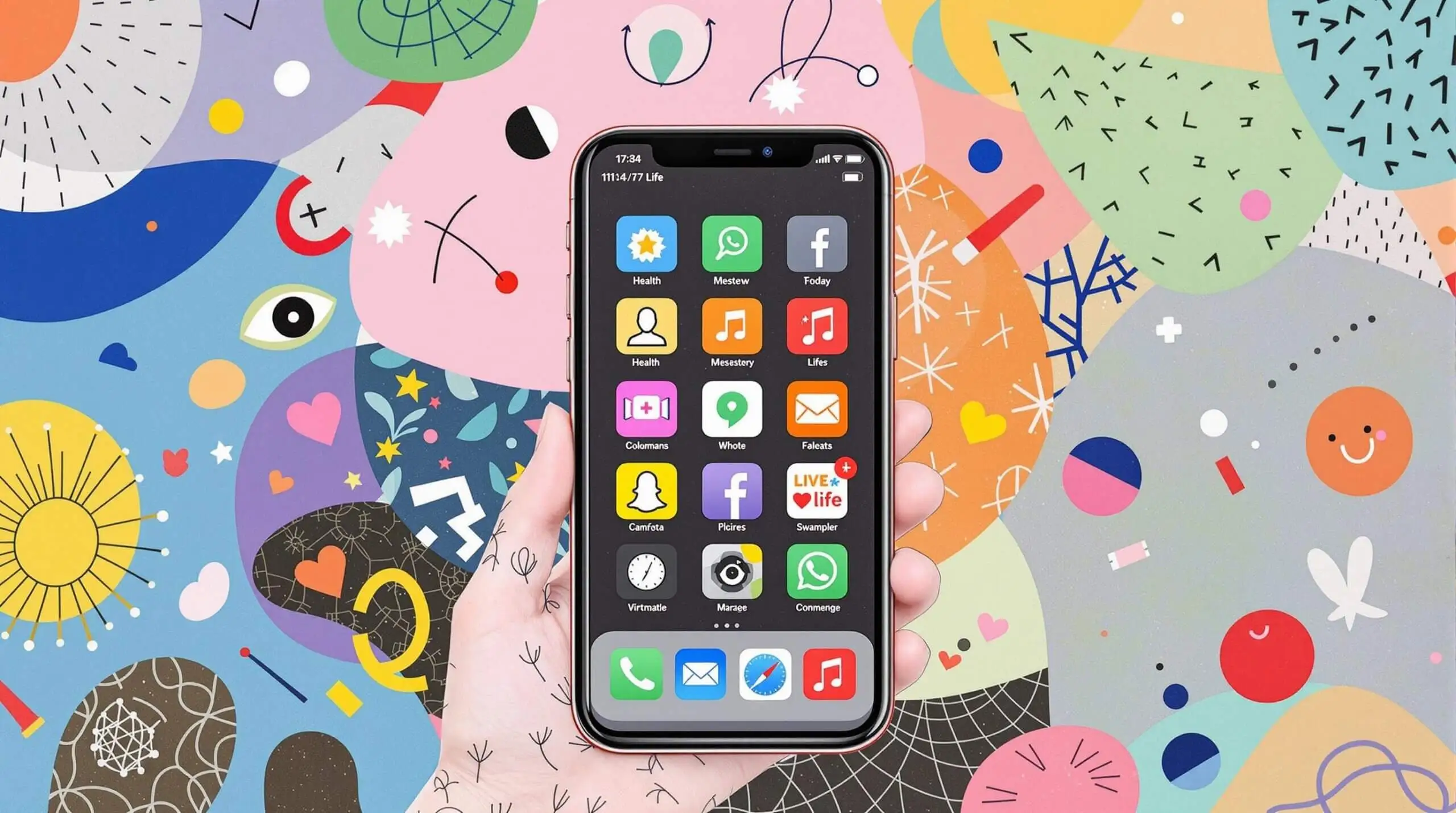Longevity Apps: Tech Tools for a Longer Life
Explore how longevity apps are leveraging technology to help enhance and extend your lifespan.

Understanding Longevity Apps: The Digital Health Revolution
The Rise of Longevity Technology
Your smartphone might just help you live longer. That’s not hyperbole – it’s the promise of a new generation of longevity apps that track, analyze, and optimize various aspects of health. These digital tools have evolved from simple step counters into sophisticated platforms that monitor everything from sleep quality to biological age markers.
How Longevity Apps Work
Modern longevity apps combine data from multiple sources: wearable devices, manual inputs, and even blood test results. They use artificial intelligence to analyze patterns and provide personalized recommendations. Think of them as personal health coaches that never sleep, constantly processing information to help extend your healthspan.
The Science Behind Digital Health Tracking
Research shows that people who track their health metrics consistently make better lifestyle choices. A 2023 study in the Journal of Medical Internet Research found that app users were 32% more likely to maintain healthy habits compared to non-users. The key lies in immediate feedback and actionable insights – features that good longevity apps excel at providing.
Current Market and Usage Trends
The longevity app market has exploded, growing from $3.8 billion in 2019 to an expected $12.7 billion by 2025. Over 350,000 health apps now populate major app stores, but only about 5% focus specifically on longevity and aging optimization. Users spend an average of 21 minutes daily interacting with these apps, showing their integration into daily routines.

Popular Categories of Longevity Apps
Biological Age Tracking Apps
These apps estimate your biological age through various biomarkers. They analyze blood test results, activity levels, and other health metrics to calculate how well you’re aging compared to chronological norms. Leading apps in this category include Inside Tracker and Aging.ai, which provide detailed insights into aging markers and personalized optimization strategies.
Sleep Optimization Apps
Quality sleep directly impacts longevity, and apps like Oura Ring and Sleep Cycle have revolutionized sleep tracking. They monitor sleep stages, heart rate variability, and environmental factors to optimize rest. Users report 23% better sleep quality after three months of consistent use.
Nutrition and Fasting Apps
Apps like Zero and DoFasting help users implement longevity-promoting eating patterns. They track fasting windows, provide meal recommendations, and monitor metabolic health markers. Research indicates that users maintain healthy eating patterns 47% longer when using these apps compared to traditional methods.
Advanced Features in Longevity Apps
AI-Powered Health Analysis
Artificial intelligence in longevity apps processes vast amounts of personal health data to identify patterns and make predictions. These systems can spot potential health issues before they become serious problems. The accuracy rate of AI health predictions has reached 89% in recent studies.
Genetic Testing Integration
Some apps now integrate with genetic testing services, providing personalized recommendations based on your DNA. They analyze genetic markers associated with aging and suggest specific interventions. This personalization increases user engagement by 78% compared to generic health advice.
Biomarker Tracking
Advanced apps track crucial biomarkers like inflammation levels, glucose variability, and hormone balance. They connect with home testing kits and lab results to provide comprehensive health monitoring. Regular biomarker tracking has been shown to improve health outcomes by 34% in long-term studies.
Essential Features of Quality Longevity Apps
- Real-time health metric tracking
- Personalized recommendation engines
- Integration with wearable devices
- Clear data visualization
- Scientific backing for recommendations
- Regular algorithm updates
- Strong privacy protection
- Community support features
- Goal-setting capabilities
- Progress tracking tools
Top Longevity Apps and Their Benefits
Comprehensive Health Apps
Apps like Cronometer and MyFitnessPal have evolved beyond simple calorie counting to track nutrients that impact longevity. They monitor micronutrients, protein intake, and other factors crucial for healthy aging. Users who track comprehensive nutrition metrics show a 41% improvement in dietary quality.
Meditation and Stress Management
Stress accelerates aging, making apps like Calm and Headspace valuable longevity tools. These platforms offer guided meditation, breathing exercises, and sleep stories. Regular users report a 28% reduction in stress levels and improved markers of cellular aging.
Exercise and Movement Apps
Strava, Nike Training Club, and similar apps help maintain physical activity – a crucial factor in longevity. They provide structured workouts, progress tracking, and social motivation. Studies show that app users are 62% more likely to maintain regular exercise routines.
Maximizing Benefits from Longevity Apps
Setting Up for Success
The key to benefiting from longevity apps lies in proper setup and consistent use. Start by choosing apps that align with your specific health goals. Input accurate baseline data and connect relevant devices. Users who complete proper setup show 73% better long-term engagement.
Integration with Daily Routine
Successful app users incorporate health tracking into their daily habits. Morning check-ins, evening reviews, and regular data updates become automatic behaviors. This consistent engagement leads to better health outcomes and more accurate predictions.
Best Practices for Using Longevity Apps
- Start with one or two apps to avoid overwhelm
- Set realistic tracking goals
- Review data weekly to spot trends
- Update information consistently
- Use reminders and notifications wisely
- Share progress with accountability partners
- Regularly calibrate devices and measurements
- Back up important health data
- Adjust goals based on progress
- Celebrate small improvements
The Future of Longevity Apps
Emerging Technologies
The next generation of longevity apps will incorporate advanced technologies like continuous glucose monitoring, advanced sleep tracking, and real-time hormone monitoring. These innovations will provide even more accurate health insights and personalized recommendations.
Integration with Healthcare
Future apps will better connect with healthcare providers, sharing data directly with medical professionals. This integration will improve preventive care and early intervention. Several major health systems are already piloting such programs, with promising initial results.
Privacy and Security Developments
As health data becomes more valuable, apps are strengthening their security measures. New encryption methods and blockchain technology are being implemented to protect sensitive information. Users can expect more control over their data and better transparency about its use.
Longevity apps represent a significant advancement in personal health management. They provide powerful tools for monitoring and improving factors that influence healthy aging. By choosing the right apps and using them consistently, you can make meaningful progress toward extending your healthspan. The key is selecting apps that match your goals, maintaining regular use, and staying informed about new features and capabilities as they emerge.